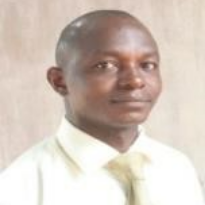International Journal of Image, Graphics and Signal Processing (IJIGSP)
IJIGSP Vol. 15, No. 4, 8 Aug. 2023
Cover page and Table of Contents: PDF (size: 1494KB)
Radio Spectrum Measurement Modeling and Prediction based on Adaptive Hybrid Model for Optimal Network Planning
Full Text (PDF, 1494KB), PP.19-32
Views: 0 Downloads: 0
Author(s)
Index Terms
Communication, Path Loss, log-distance, Wavelet, Levenberg-Marquart, communication.
Abstract
Path loss model is fundamental to effective network planning. It provides adequate information on the extent of signal loss and help to improve the quality of service of cellular communication in an area. In this paper we used a hybrid wavelet and improved log-distance model for modeling and prediction of propagation path loss in an irregular terrain. The prediction accuracy of the proposed model was quantified using five statistical metrics. As seen presented in Table 2 and Table 3, the proposed model outperformed the standard log-distance model, the COST234 Hata and Okumura Hata models by an average of 20%.
Cite This Paper
Seyi E. Olukanni, Joseph Isabona, Ituabhor Odesanya, "Radio Spectrum Measurement Modeling and Prediction based on Adaptive Hybrid Model for Optimal Network Planning", International Journal of Image, Graphics and Signal Processing(IJIGSP), Vol.15, No.4, pp. 19-32, 2023. DOI:10.5815/ijigsp.2023.04.02
Reference
[1]S. Choudhary and D. K. Dhaka, “Path loss Prediction Models for Wireless Communication Channels and its Comparative Analysis,” Int. J. Eng. Manag. Sci., no. 3, pp. 38–43, 2015.
[2]H. I. Satoshi KAZAMA, “Determination of Noise Sources Affecting Wireless Communications,” IEEE Electr. Des. Adv. Packag. Syst. Symp., pp. 0–3, 2013.
[3]P. Song, Y. Tan, X. Geng, and T. Zhao, “Noise Reduction on Received Signals in Wireless Ultraviolet Communications Using Wavelet Transform,” IEEE Access, vol. XX, pp. 1–11, 2020, doi: 10.1109/ACCESS.2020.3009944.
[4]N. Shabbir, M. T. Sadiq, H. Kashif, and R. Ullah, “Comparison Of R Adio P Ropagation M Odels For L Ong T Erm E Volution ( Lte ) Network,” Int. J. Next-Generation Netw., vol. 3, no. 3, pp. 27–41, 2011.
[5]P. K. Sharma, “Optimization of Propagation Path Loss Model in 4G Wireless Communication Systems,” 2018 2nd Int. Conf. Inven. Syst. Control, vol. 20, no. Icisc, pp. 1245–1248, 2018.
[6]O. G. Igbinosa and U. K. Okpeki, “Performance investigation of different pathloss models for a wireless communication system in Nigeria,” Heliyon, vol. 5, no. March, 2019, doi: 10.1016/j.heliyon.2019.e01656.
[7]A. Akinbolati and M. O. Ajewole, “Heliyon Investigation of path loss and modeling for digital terrestrial television over Nigeria,” Heliyon, vol. 6, no. November 2019, 2020, doi: 10.1016/j.heliyon.2020.e04101.
[8]G. R. M. et Al, “A Review on Investigation and Assessment of Path Loss Models in Urban and Rural Environment,” IOP Conf. Ser. Mater. Sci. Eng. 225 012219, pp. 0–8, 2017, doi: 10.1088/1757-899X/225/1/012219.
[9]S. Orike, P. Elechi, and I. A. Ekanem, “Assessment and Modeling of GSM Signal Propagation in Uyo Nigeria,” Eur. J. Eng. Res. Sci., vol. 2, no. 11, pp. 49–58, 2017.
[10]J. Isabona and A. L. Imoize, “Terrain-based adaption of propagation model loss parameters using non-linear square regression,” J. Eng. Appl. Sci., vol. 7, pp. 1–19, 2021, doi: https://doi.org/10.1186/s44147-021-00035-7.
[11]Y. Zakaria and L. Ivanek, “Propagation Modelling of Path Loss Models for Wireless Communication in Urban and Rural Environments at 1800 GSM Frequency Band Models,” pp. 139–144, 2016, doi: 10.15598/aeee.v14i2.1586.
[12]Y. Chen and H. Oh, “Spectrum measurement modelling and prediction based on wavelets,” IET Commun., vol. 10, pp. 2192–2198, 2016, doi: 10.1049/iet-com.2016.0035.
[13]Y. Tan, X. Geng, and T. Zhao, “Noise Reduction on Received Signals in Wireless Ultraviolet Communications Using Wavelet Transform,” IEEE Access, vol. 8, 2020, doi: 10.1109/ACCESS.2020.3009944.
[14]D. Valencia, D. Orejuela, J. Salazar, and J. Valencia, “Comparison Analysis Between Rigrsure , Sqtwolog , Heursure and Minimaxi Techniques Using Hard and Soft Thresholding Methods,” IEEE, pp. 1–5, 2016.
[15]M. F. Ibrahim, M. Sc, D. Ph, P. J. D. Parsons, M. Sc, and C. Eng, “Signal strength prediction in built-up areas Part 1 : Median signal strength,” IEE Proc., vol. 130, no. 5, pp. 377–384, 1983.
[16]A. E. Ibhaze, A. L. Imoize, S. O. Ajose, S. N. John, C. U. Ndujiuba, and F. E. Idachaba, “An Empirical Propagation Model for Path Loss Prediction at 2100MHz in a Dense Urban Environment,” vol. 10, no. February, pp. 1–9, 2017, doi: 10.17485/ijst/2017/v10i5/90654.
[17]N. P. Commission, “Nigerian population census.” Publ. by NPC, Abuja, 2006.
[18]E. O. Abubakar, “An integrated geospatial analysis of land suitability for urban expansion in Lokoja, Nigeria,” An M. Sc Thesis Submitt. to Dep. Geogr. Obafemi Awolowo Univ. (OAU), Ile Ife, Osun State, Niger., 2013.
[19]O. O. Erunkulu, A. M. Zungeru, S. Member, K. Caspar, and J. M. Chuma, “Cellular Communications Coverage Prediction Techniques : A Survey and Comparison,” IEEE Access, 2020, doi: 10.1109/ACCESS.2020.3003247.
[20]R. J. Barsanti and J. Gilmore, “Comparing Noise Removal In The Wavelet And Fourier Domains,” IEEE, pp. 163–167, 2011, doi: 10.1109/SSST.2011.5753799.
[21]M. P. Nageswari, U. S. Banu, K. Kumar, and S. M. Sujith, “Feature Extraction Of Ecg Using Daubechies Wavelet And Classification Based On Fuzzy C-Means Clustering Technique Feature Extraction Of Ecg Using Daubechies Wavelet And Classification Based On Fuzzy C-Means Clustering Technique,” Res. gate, no. June, pp. 2–7, 2014.


